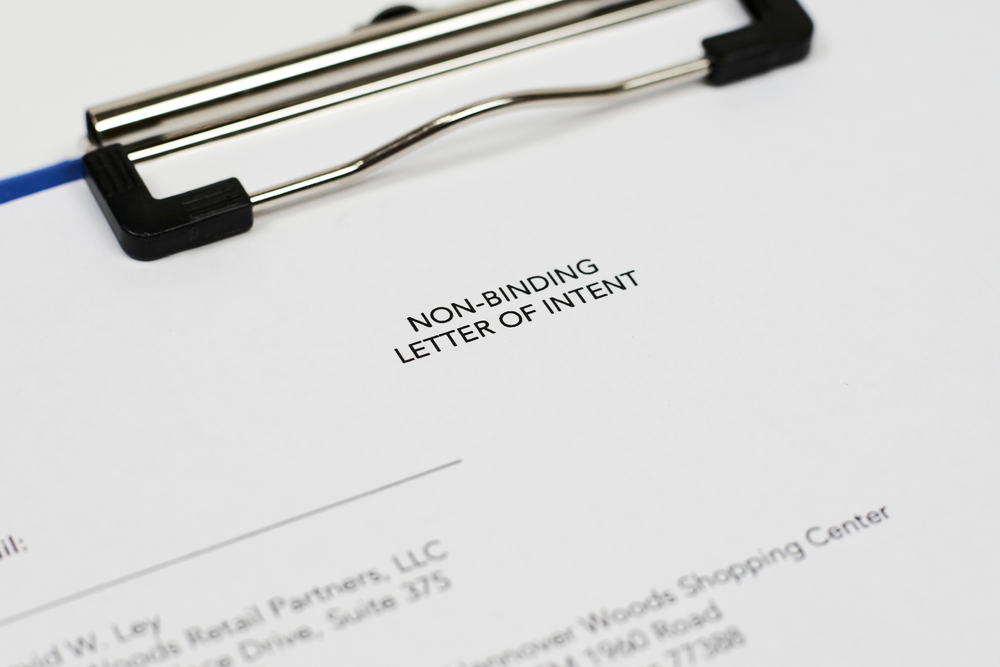Many Americans don't think they need to draft an estate plan. Sometimes, it's because they don't think they have enough assets or that their assets aren't of significant value.
Other times, they don't want to think about a time when they aren't here anymore or think they are young and have plenty of time to make an estate plan.
When something unexpected happens, you want to ensure your family isn't overwhelmed or burdened by unnecessary costs. Every American needs a detailed plan about what happens after death or incapacity.
Advanced planning can save your family members the hassle of going to court if medical decisions are necessary. It can provide them with peace about your desires concerning a medical issue and clarify your wishes after death. Having an estate plan can reduce the cost and time required to go through probate court.
The good news is that you don't have to create your estate plan alone. A knowledgeable Vero Beach estate planning attorney can navigate the process, providing everything you need.
Schedule A Consultation Today!
What Is an Estate Plan?

One of the most essential steps you can take to ensure your desires will be honored upon your death or if you become unable to manage your own affairs is to participate in estate planning.
The estate planning process involves your concerns, goals, assets, how your assets are owned, and your family structure. It is often a complex process. Mistakes or omissions can cause serious problems after you can no longer express your wishes.
Your family members can face immense stress and even financial implications. When you work with skilled estate planning lawyers, they will address all your estate planning needs.
What Should an Estate Plan Include
At its most basic, an estate plan outlines how you want your assets managed and distributed both during your lifetime and after your death. Here are the essential elements that most people should include in a thorough estate plan.
Will
A last will and testament is the foundation of any estate plan. This document allows you to specify how the court will distribute your assets upon your death. In your will, you can name an executor to manage the distribution of your assets and a guardian for any minor children.
Without a valid will, the state's intestacy laws will determine the distribution of your assets, which may not align with your wishes.
Trusts
Trusts are powerful tools that can provide more control and flexibility in the distribution of your assets. They allow you to transfer assets to a trust during your lifetime, with detailed instructions on managing and distributing them.
Trusts can help avoid probate, maintain privacy, and provide for the needs of specific beneficiaries, such as minor children or individuals with special needs.
Several different types of trusts exist, including:
- A revocable trust that you can alter at any time
- An irrevocable trust that you cannot alter
- A special needs trust to help dependents with special needs qualify for government aid
- A charitable trust that benefits charities of your choosing
Power of Attorney
A Power of Attorney (POA) grants someone the legal authority to act on your behalf in financial and legal matters. Different types of POAs exist, including general, limited, and durable.
A general POA gives broad powers, a limited POA restricts authority to specific actions, and a durable POA remains in effect even if you become incapacitated. Having a POA ensures that someone you trust can make important decisions if you cannot do so.
Healthcare Directive (Living Will):
A healthcare directive, or living will, outlines your preferences for medical treatment in case you cannot communicate your wishes. It addresses issues such as life support, organ donation, and other medical interventions.
Designating a healthcare proxy to make medical decisions on your behalf is often part of this document.
Beneficiary Designations
Many assets, such as life insurance policies, retirement accounts, and bank accounts, allow you to designate beneficiaries. These designations override instructions in your will, so keeping them up-to-date is crucial.
Regularly review and update beneficiary designations to align with your wishes and family circumstances.
Letter of Intent

While not a legally binding document, a Letter of Intent can be a valuable addition to your estate plan.
It provides guidance to your executor or beneficiaries about your preferences, such as funeral arrangements, the care of pets, and other non-legal matters. This document can offer a more personal touch and clarity during an emotional time.
Digital Assets Plan
In our increasingly digital world, you may want to address your digital assets in your estate plan. This includes online accounts, social media profiles, and other digital possessions.
Specify how you want others to manage these assets, whether it's closing accounts, transferring ownership, or providing access to designated individuals.
Guardianship Designations
If you have minor children, it's crucial to designate a guardian in your will. This ensures that, in the event of your death, someone you trust will have legal responsibility for your children.
Discuss this decision with the chosen guardian beforehand to ensure their willingness and suitability for the role.
Other Considerations for Estate Planning
Tax Planning
Consider the potential tax implications of your estate plan. Consult with your estate planning attorney to explore strategies to minimize estate taxes, such as gifting, establishing trusts, or taking advantage of available exemptions.
Regular Reviews and Updates
Life is dynamic, and your circumstances may change over time. Regularly review and update your estate plan to reflect significant life events such as marriages, divorces, births, deaths, or changes in financial status. This keeps your estate plan current and aligned with your evolving goals.
Professional Guidance
Seek the assistance of legal and financial professionals when creating your estate plan. An experienced estate planning lawyer can navigate complex legal requirements, ensure your documents comply with state laws, and provide guidance on strategies to achieve your specific goals.
A comprehensive estate plan includes much more than just a will. It includes a range of legal documents and strategies to protect your assets, provide for your loved ones, and ensure your wishes are honored.
Craft your estate plan to your unique circumstances, and regularly review and update it to reflect changes in your life. Consulting experienced professionals allows you to navigate the various complexities of estate planning and provides peace of mind for you and your loved ones.
When Should You Draft a Will or Trust?
Estate planning, or drafting a will or trust, is essential to all adults. Whether you have children or are wealthy or not, designate plans for what should happen to your assets.
Thinking about death causes many people to put this process off for as long as possible or never visit it at all. However, doing so gives you more control when you die.
You never know how much time you have left or what will happen in the next day, week, or month. There's never been a better time to get your affairs in order.
Many people aren't aware that if they don't plan ahead, they risk leaving their families in a difficult legal and financial situation without a clear idea of what they want to happen to their assets.
If you die without an estate plan, your estate must go to probate court. Your state's probate laws, not your desires and wishes, will govern the distribution of your assets.
Probate court is expensive and lengthy. It can put your loved ones through an unnecessary and stressful process. However, you can avoid putting family members through this process by drafting a will and using a trust.
Many people mistakenly believe that they only need a will and that trusts are only for wealthy people. However, anyone who owns property should have both a will and a trust. Only having a will won't protect your assets from probate. If you want to avoid probate, use both of these legal tools.
The good news is that a trust also has other benefits, such as:
- Reducing estate taxes
- Protecting assets from creditors
- Protecting your family members from making unwise financial decisions
Is the Estate Planning Process Complicated?
Estate planning process takes more than a few minutes. However, your estate attorney can break it down into more manageable steps.

First, you provide some basic information about yourself, including your family members, your assets, and any special planning concerns you have. From there, you can discuss what you want to happen to you, your family, and your assets in different circumstances.
Finally, your estate lawyer drafts the documents and reviews them with you so you understand what they are and what they will do.
How Estate Planning Attorneys Can Help
You and your family have numerous benefits when you hire estate planning attorneys to help plan your estate. Here are just a few:
Ensuring You Update Documents When It's Necessary
Wills, trusts, and other estate planning documents aren't something you create and never revisit. As various life events happen or your financial situation changes, you'll want to plan so that related legal estate documents still do what you want them to.
Your attorney should carefully review your estate planning documents to identify any needed updates, considering your specific goals and wishes. Depending on the situation, sometimes a codicil to a will or amendment to a trust will serve. Other times, you may need to re-evaluate your estate plan to avoid probate or decrease estate taxes.
Keeping Your Documents in Compliance with Current Laws
A licensed estate planning lawyer can draft your documents and keep them current in accordance with current state and federal laws. Probate and trust laws are state-specific, and they sometimes change. Working with a skilled estate planning lawyer can give you peace of mind, knowing that your estate plan complies with state law.
Knowing Your Documents Say What You Want Them To
If you don't understand or misinterpret what an estate planning form asks, it might not do what you want it to.
Even worse, most estate planning document errors don’t appear until after someone dies. If that's the case, it's too late to make changes. When you hire a knowledgeable estate planning attorney, they will work to understand your desires. They will consider various scenarios when drafting your documents that accurately reflect your desires.
Receiving Legal Advice About Asset Titling and Beneficiary Designations
One frequently relied upon myth is that your will or trust inevitably applies to all your assets. However, certain types of property ownership and beneficiary designations on assets, for example, those on retirement accounts and life insurance, pass regardless of your will or trust unless you take action to ensure they work together.
Your estate planning lawyer can examine your assets to provide recommendations, work on retitling property and accounts, and alter beneficiary designations so your estate plan includes all of your assets.
Avoiding redundant, expensive, and time-consuming probate proceedings when someone dies relies upon you taking these actions.
Meet with an Experienced Estate Planning Lawyer

Estate planning certainly isn't what most people consider enjoyable. However, it can ensure that your heirs honor your wishes when you are no longer alive and that your family and other beneficiaries don't have to go through the hassle and expense of probate court.
When you work with accomplished estate planning lawyers, rest assured you are doing what you can to protect your assets and ensure your heirs follow your wishes when you can no longer speak for yourself—whether due to incapacitation or death.
Taking the time to create your plan now with the right legal assistance can make a huge difference for you and those you love later on.
